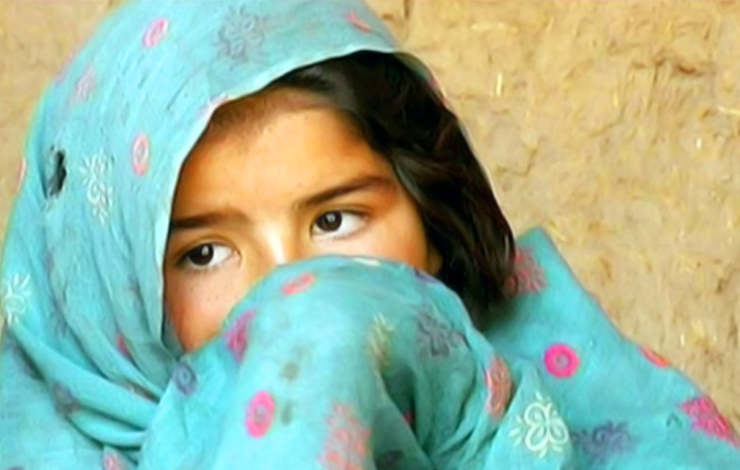
Remember CNN when it was born? The networks called it the "Chicken Noodle Network." But it was a revolution that changed news forever. Back then, the idea was a network that would make the world a smaller place, providing storytelling and context that would facilitate understanding. But news doesn't really work that way. It tends to be instantaneous, fact-driven and fairly black-and-white.
Documentaries are a different matter; the world is a very complex place, and global conflicts are fueled by prejudice, misunderstanding and ignorance. Black-and-white news doesn't always clarify the story.
After September 11, 2001, all eyes turned on Afghanistan, and I was desperate to understand the place. I watched Saira Shah's Beneath the Veil on CNN Presents, the documentary slot on CNN. That film was an extraordinary journey and remarkable adventure; Shah made the world a more understandable place by making this brave film, and CNN had the foresight to acquire the US rights long before September 11.
That film is just one example. Charles Poe's Afghanistan film Into the Forbidden Zone, on National Geographic Explorer, was a groundbreaking exploration. Joel Katz's Strange Fruit opened my eyes to the American Civil Rights movement, which I thought I already understood. But 1961 was a very complex time, and the understanding that music could both heal and underline raw emotions helped fill an empty place in my brain.
How is it that television news, now the most prevalent and powerful source of information in our culture, hasn't caught on to all this? It seems that what we do, as documentary filmmakers, is so critically important to protecting and enhancing the world in which we live. While news tells us what happened, documentaries tell us why things happened, what if felt like to be there and what the context was. If documentaries can change the world, why aren't there more of them on television, and what can we do to change that? Part of it is culture: news is fast, documentaries are slow. And people have come to expect instant information.
Maybe it's time for a channel with a new kind of news. First, look at the competition in the news area today: Fox News has a voice, an ideology, and a passion for ideas. What Fox has done is simply to take a position, and the audience is reacting to the power of that focus. CNN, in its DNA, is a global news network. Even if its recent focus is domestic, in its history CNN has undertaken the Goodwill Games, built a bureau in Cuba and been at the forefront of extensive coverage in Russia, reflecting Ted Turner's passion for world peace and collective understanding.
MSNBC was launched as a technology site (remember, the "MS" stands for Microsoft), then it became a twentysomething news site. Then it was NBC News 24, then it was magazine/docu/reality, and now it's something else: Talk. Why talk? Talk is inexpensive. You can test lots of formats. When one hits, you're off to the races. Talk, however, requires a willingness to open your network to a group of ideological table-pounders.
What can a new network do to find a soul and create a unique viewing experience for audiences? First, it needs to become the home of passionate and subjective debate, discussion and the inevitable controversy that they will create. But debate and discussion need to range beyond the headlines in order to promise both heat and light—and enlightenment. A documentary could get the conversation going. Michael Moore's Bowling for Columbine, for example, could act as a terrific spark plug on a network, then spin off into a series of stories exploring guns, violence, race and the NRA.
This scenario requires a kind of television that doesn't simply create images around the headlines of The New York Times. It takes a willingness to get in front of news. And this DNA will need to be nurtured at a new network. The Canal Plus film 11.09.01 takes a hard anti-American look at the events around the attack. Will we see it on American television? Maybe some day, on IFC or Sundance. But why not play it our new DOCU-NEWS network, then bring together a panel of feisty, smart people to explore the issues the film raises? The connection of documentary and discussion is far more powerful than the "debate the headlines" model that is presently on the air.
There are hundreds of terrific documentaries made by passionate, engaged and empowered individuals. The network that I envision would air documentaries, then utilize those films to create engaging debates on these topics. Once you create the platform to raise issues and explore them, you've broken out of the logjam of daily news and opened the network to a whole new spectrum of programs and ideas.
Steven Rosenbaum can be reached at Steven.Rosenbaum@CameraPlanet.com
